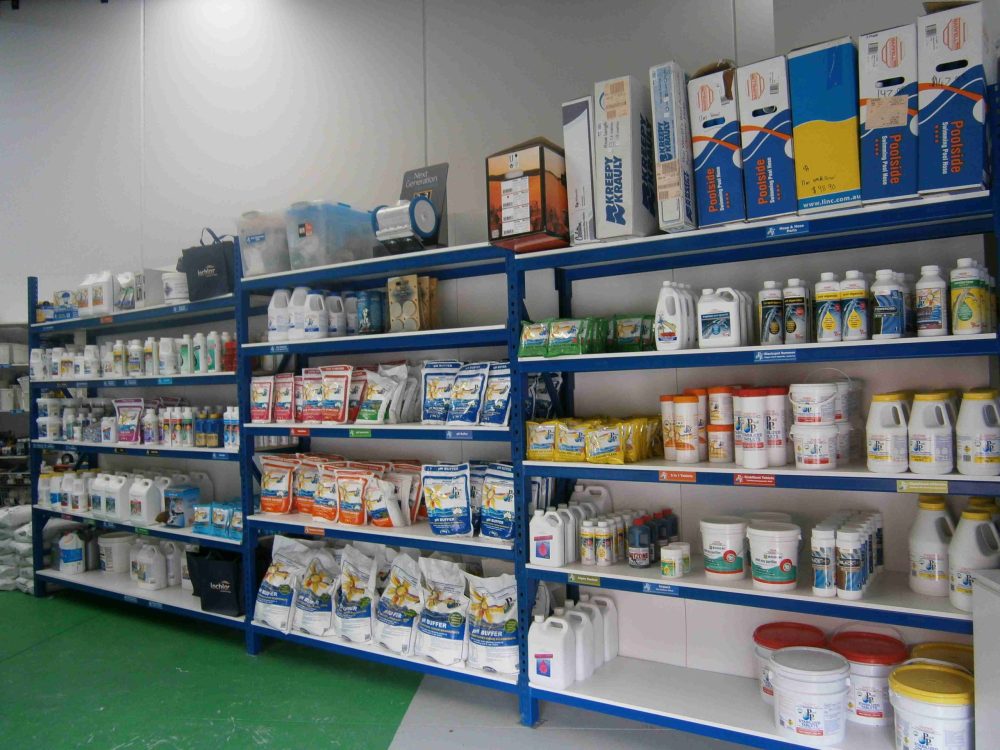When you have pool chemicals around your house, it can be a little difficult to keep your home environment safe. Therefore we will provide guidelines for proper storage of your pool chemicals.
Apart from keeping your pool clean, you also need to keep your pool environment safe for your entire family. And these chemicals can be dangerous if you don’t handle and store the elements properly.
And the first step to making sure your pool stays clean all summer is organizing your chemicals. Because chemical treatments are a big part of keeping your pool working properly.
There are some general rules to follow when storing pool chemicals at home. Even though you have heard it hundreds of times before, but if chemicals are not stored properly, they can be dangerous for you and anyone in your home.
Best Place for Pool Chemicals Storage
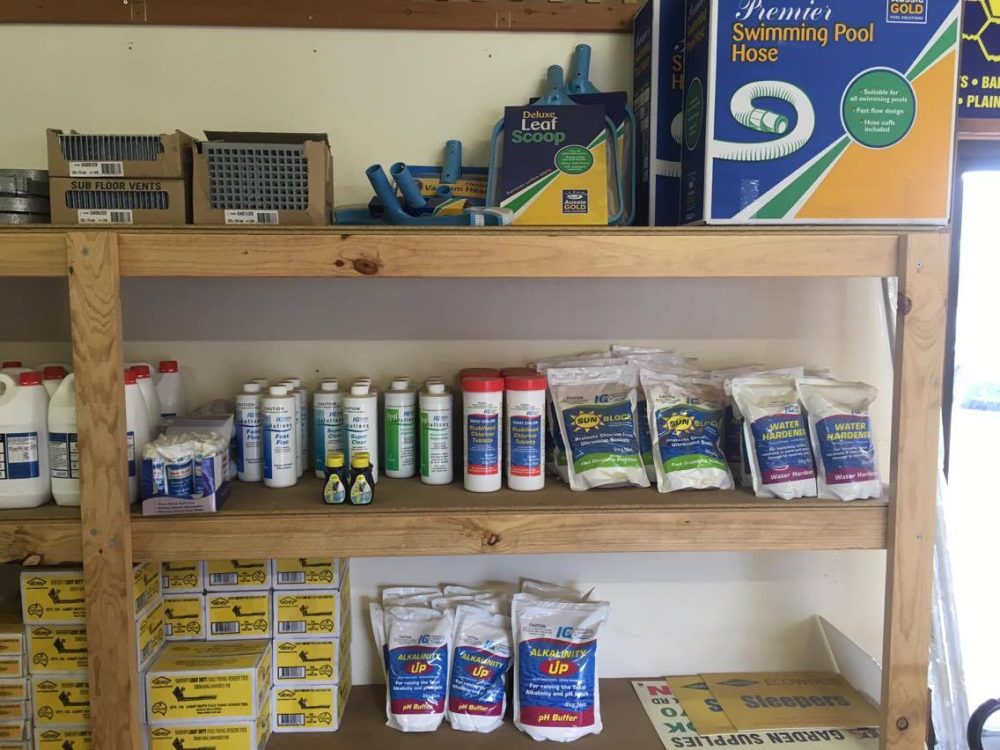
Pool chemicals have components that can cause rust on metal objects in storage areas. And they can also decompose naturally over time.
Therefore you must minimize and manage their potential in the long term. You must anticipate leaks and prevent the possibility of inhaling or coming into contact with contaminated elements.
Wherever your pool chemicals are stored, make sure it’s dry, cool, and well-ventilated. It is even better if you seal your pool chemicals in a closet or storage area that has ventilation.
Some people think that it is safe to store their pool chemicals in the garage. But actually this is not a good place especially if there is gasoline or other chemicals in your garage.
The risk of exposure will always be a threat to the environment around your storage area. Even sealed products have the potential to leak because pool chemicals have corrosion-causing compounds and decompose naturally.
Read also: Swimming Bugs in Pool Solution: Get Rid of Water Bugs in Your Pool
General Rules for Pool Chemicals Storage
Here are some general rules you can follow to protect your environment from pool chemicals. Because if they are not handled properly it will cause harm to you and the environment around your storage area. They are as follows:
1#Read the Labels

If you are a conscientious and careful person, then reading product labels is part of your habit. And that’s the first order of action when it comes to ensuring the safety of swimming pool chemicals in storage rooms.
The label on the chemical container will contain all important information such as storage instructions and safety information. Read the fine print thoroughly on all your pool chemicals to avoid scary chemical reactions.
And at the end of the day you also have to keep the labels legible so you can always read them.
2#Keep Sealed

Storing pool chemicals sealed in their original containers will minimize the risk of any harm to you. Because certain chemical compounds can cause expensive damage, so you have to anticipate it.
Pool chemical products generally include pool shocks and enzyme products; and chlorine and calcium hypochlorite. If they are mixed, they will cause dangerous chemical reactions such as fire, explosion, and release of chlorine gas.
Chlorine gas is dangerous for the health of your lungs because it can cause fluid buildup that causes pulmonary edema. And even in direct contact, liquid chlorine can cause irritation in the form of frostbite to the eyes or skin.
To avoid the possibility of them reacting with other chemicals, you should store pool chemicals in their original containers. Use a separate scooper to remove each chemical from the container.
Because if they are scattered, even a small amount of chemicals can react with each other and can result in possible chaos. Don’t leave the slightest trace so you don’t get into trouble later.
3#Keep Dry and Ventilated
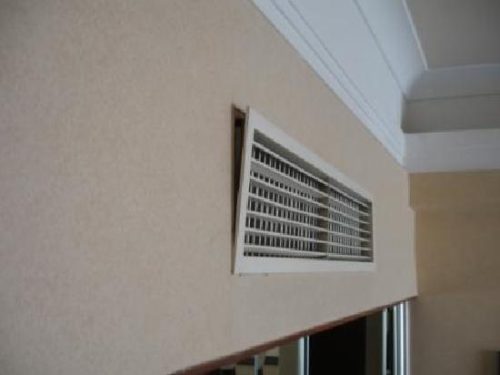
Making sure your pool chemicals don’t get wet is one thing you should know. Because if they get wet, they can release chlorine gas which is harmful and causes corrosion.
On the other hand, in high temperatures and excessive humidity, the chemical will expand in the container and cause leakage. Therefore you should store your pool chemicals in a cool and well-ventilated place.
Ventilation will provide airflow to prevent concentrations of harmful fumes that build up when you open the container.
Even ventilation will be a very important thing if you have a lot of pool chemicals that you store close to each other.
In the end you should always maintain the temperature in your pool chemical storage environment. This will always prevent the risk of expansion when it is too hot or chemical infectivity when it is colder.
4#Avoid Water Area
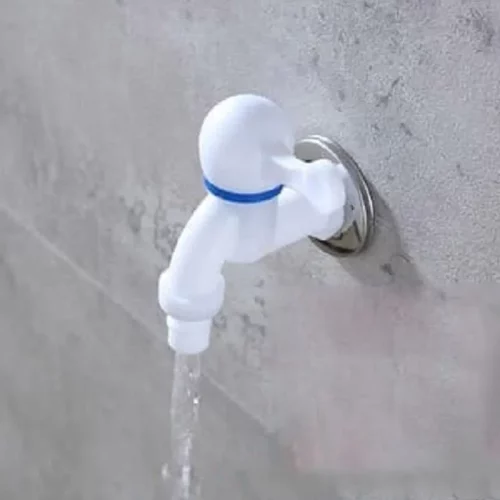
Pool chemicals are never suitable for storage in areas of high humidity or even water. In addition to reducing the effectiveness of cleaning the pool, chemicals are also prone to releasing harmful gases when exposed to water.
Therefore you need to consider where your pool chemical storage is located. It’s best to avoid areas prone to flooding, open areas prone to rain, or other areas that have the potential for water.
As we discussed in the previous point, store your pool chemicals in a dry, cool and ventilated place. It will minimize any security risks that will harm you and your environment.
5#Organize Your Pool Chemicals
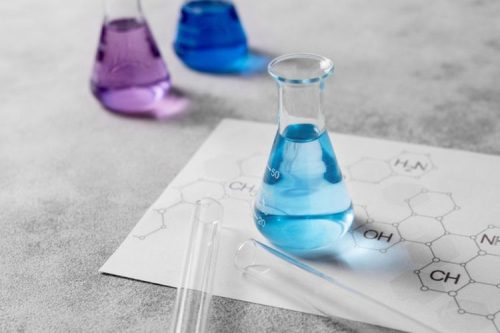
Knowing every chemical is in the storage container in your storage room is very important. It will really help you organize your storage space to increase security.
Generally you shouldn’t store chemicals on top of each other or stack their containers. And some chemicals need to be kept separate at some distance from each other to avoid reactions.
If the label on the chemical storage container is illegible, it is best to discard the chemical and purchase a new container if necessary. You can’t just guess, it can be as dangerous as keeping chlorine and acid close together.
6#No Stacking

Generally people will pile up the things they store to optimize storage space or just to look tidier. But you shouldn’t do this when you store pool chemicals in a storage area.
Container buildup increases the risk of your pool chemical container breaking or cracking. This means you will increase the chances of the chemical seeping into another tube causing a dangerous chemical reaction.
As we know that even accidental contact can result in dangerous reactions. So make sure you separate all containers from each other to maintain a safe storage environment.
7#Avoid Flammable Items
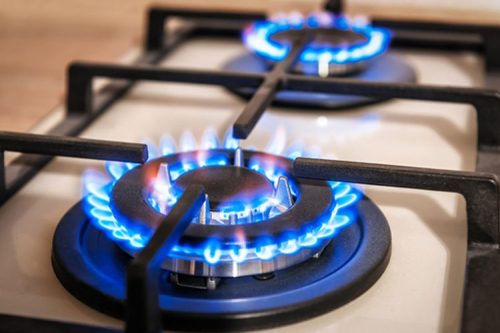
Molecules in pool chemicals will expand and cause the container to leak when it is in a hot place. This means it will be very risky when you store it close to flammable components.
Keep your storage area away from heat sources such as a grill or kitchen with a stove fire. The more careful you are with storing your pool chemicals, the less risk you will face.
8#Never Reuse Containers

When you buy a pool chemical from a shop, it will come with its original container. You just need to use the original container until it’s empty and throw it away after that.
Never reuse the empty container even if the chemical is the same. Because maybe the old batch has had a changed composition and will react with the newer components.
In addition, you should not transfer chemicals from one chemical container to another. Because traces of other chemicals must cause reactions that may be dangerous for you.
9#Secure Your Storage Area
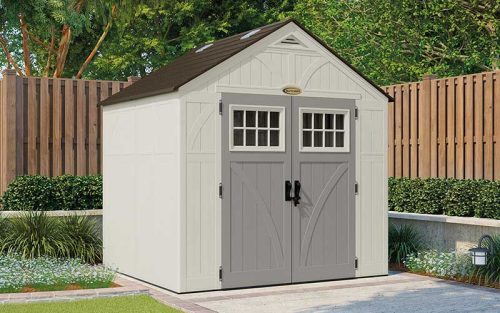
The last thing you must do is secure your pool chemical storage area. Make sure the place cannot be accessed by your children or pets.
More than 1500 cases of accidental ingestion or inhalation of pool chemicals by children between 2008 and 2017 is a serious problem. To prevent this terrible incident, make sure all your pool chemicals are stored in a locked location.
10#Let the Professionals Help You
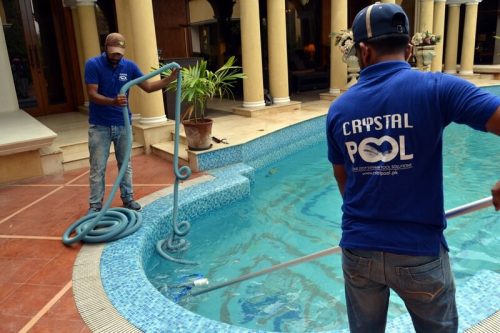
Although it looks simple, there are many things that must be considered when dealing with chemicals, whatever it is. If you really don’t have enough time to handle it, you can always ask for professional help to do it.
Many pool maintenance services provide treatment packages including the use of chemicals. It will be easier and simpler when you do not have a proper chemical storage area.
But when you have a pond large enough it will require you to store chemical reserves. No need to worry because pool maintenance services will always be able to help organize your chemical storage.
Read also: Best Pool Pump Timer to Buy in 2022 – Save Your Electricity Bill!
Important Tips for Storing Pool Chemicals
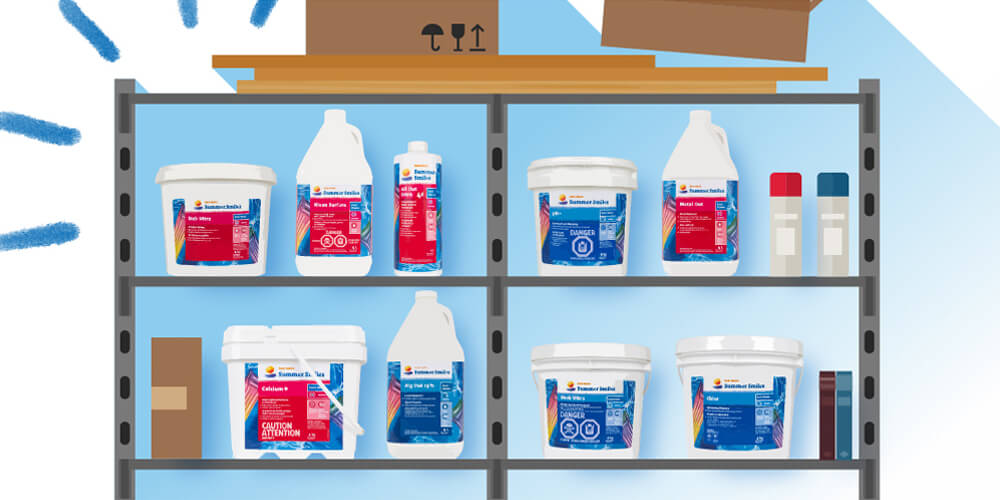
In addition to knowing the general rules for storing pool chemicals, you also pay attention to the following safety tips. Chemicals always require special treatment because they can react under certain conditions.
To increase the safety factor you need to know the following things:
1. Avoid chlorine in contact with acids. Any type of chlorine in contact will create chlorine gas when they come into contact with any type of acid outside the pool. Therefore you have to separate the two and only mix them when they are put into the pool water.
2. Avoid contact of the two different types of chlorine. Two different types of chlorine should not come into contact when in concentrated form. These conditions are very likely to trigger a fire, explosion or toxic fumes.
3. Never add water to concentrated chemicals. Adding water to the chemical will result in a violent reaction, you should avoid it. You should only add or mix chemicals into large volumes of water (such as pools).
4. Never pour chemicals into the skimmer. Pouring chlorine or an acidic liquid into the skimmer will quickly damage the pool heater and other metal components. And chemical compounds may enter the Erosion Feeder thereby producing large amounts of Chlorine Gas.
5. Sterilize the pool from people when you add chemicals. Never allow people to enter the pool when you are about to add chemicals. And after that let the pool remain sterile for at least 30-60 minutes for the chemicals to mix and dilute before letting people enter the pool.
Heat and Freeze
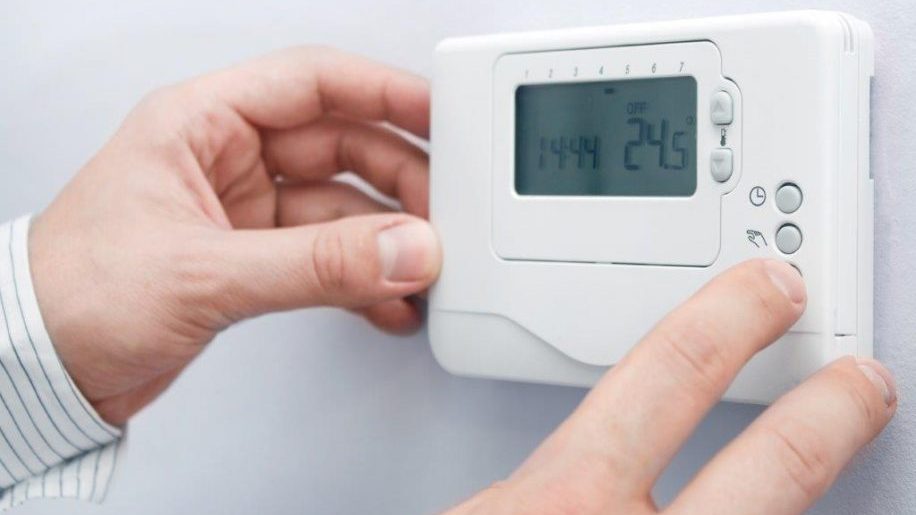
Swimming pool chemicals are more sensitive to heat than to cold temperatures. Because these compounds are generally able to maintain its composition even though it freezes.
This means that if you store swimming pool chemicals at high temperatures, it is a big risk. The heat will make the chemical molecules expand and create pressure.
It will cause unwanted conditions when you open the container. Like the concentration of chlorine gas which is quite concentrated which is dangerous for your lungs.
Swimming pool chemical containers do not always offer strong resistance to temperature. If you store pool chemicals throughout the fall and winter, they will have the potential to melt.
Read also: Heated Saltwater Pool: Everything You Need to Know!
How If Pool Chemicals Be Stored Outside?
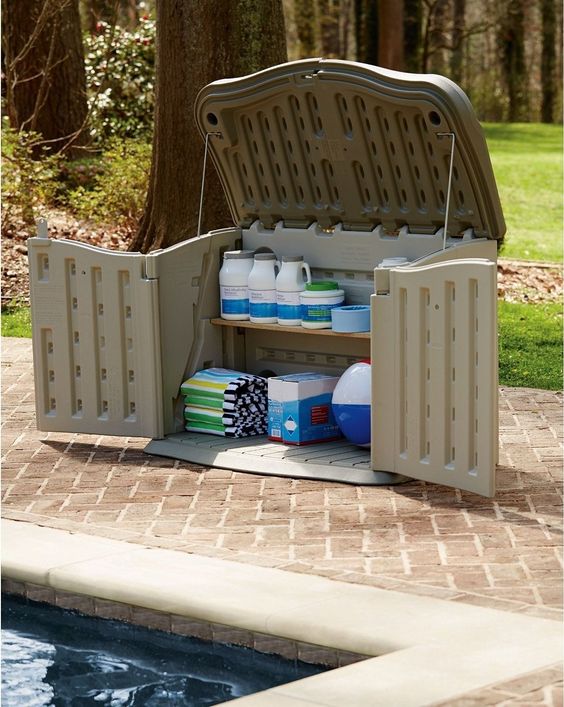
Storing chemicals outside hanging can be an alternative if your area has a temperate climate. You just need to make sure your storage area is shady enough with no excessive sun exposure.
But if your area has an unstable climate, it will increase the risk of freezing or overheating. In this case, you also often find your chemicals getting wet in the rain.
Therefore, using indoor storage is highly recommended under these conditions. And outdoor storage really depends on the climate in your area.
How Long Do Pool Chemicals Last?
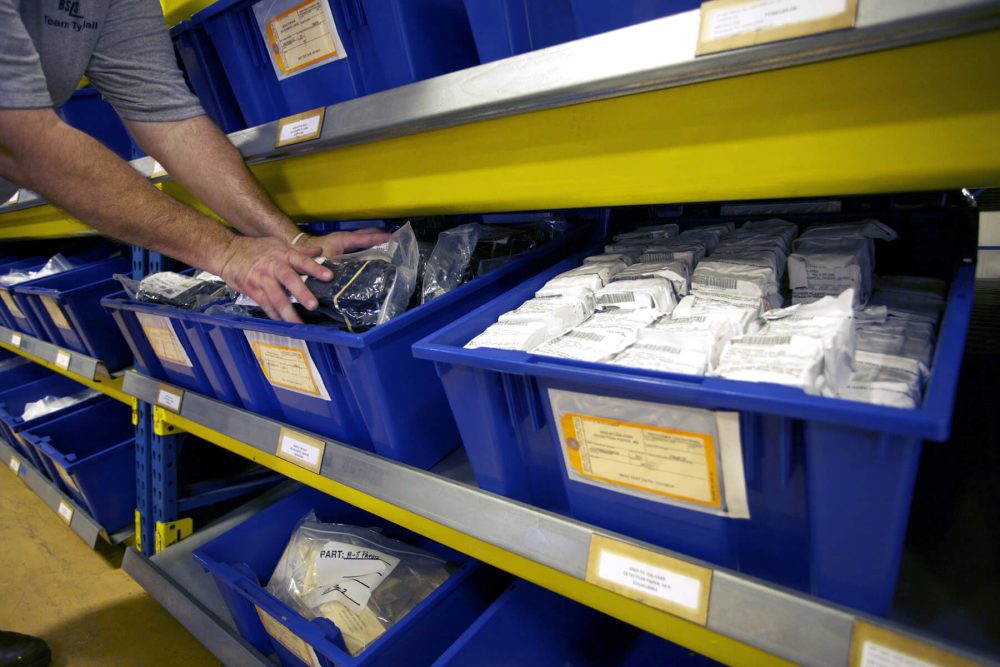
There are many types of pool chemicals on the market and you can buy. However, of all chlorine-based swimming pool products, chlorine tablets generally have the longest shelf life.
If you store it in proper storage, Chlorine-based chemicals can last up to 5 years. Even chlorine tablets can still have 98% of their original chlorine content after three years you store them.
Generally they should be stored in tightly closed buckets stored in a cool, dry and well-ventilated place. You should also keep it out of direct sunlight and water to allow the chlorine tablets to last more than five years.
In addition to chlorine tablet, there are a variety of other pool chemicals. You also need to understand how and where to store those other pool chemicals.
They also have a relatively long shelf life when you handle their storage properly. The following are various pool chemicals that you need to understand:
Algaecides
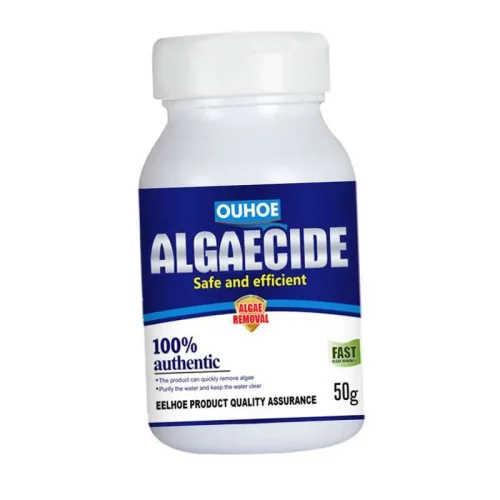
Has a shelf life of up to five years in cool, dry indoor storage and temperatures between 32°F (0°C) to 75°F (24°C). Exposure to direct sunlight can reduce shelf life and temperatures below 32°F can damage it.
Clarifiers

It can last up to five years if stored in a cool place away from sunlight. You can store them outdoors keeping in mind the temperature, higher temperatures reduce effectiveness and freezing temperatures will spoil them.
Granular Chlorine
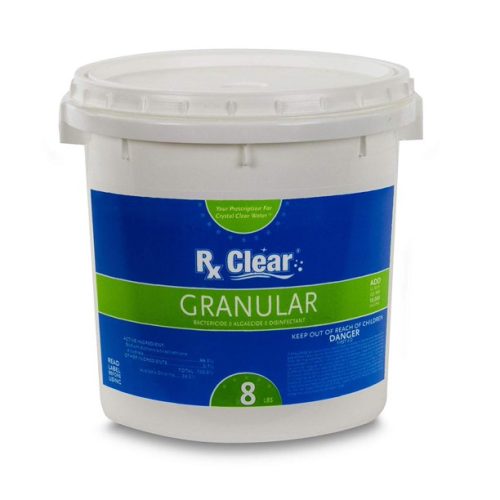
It can last up to five years when stored in a cool, dry airtight container. If exposed to moisture, these chemicals can dissolve in less than two years.
Liquid Chlorine
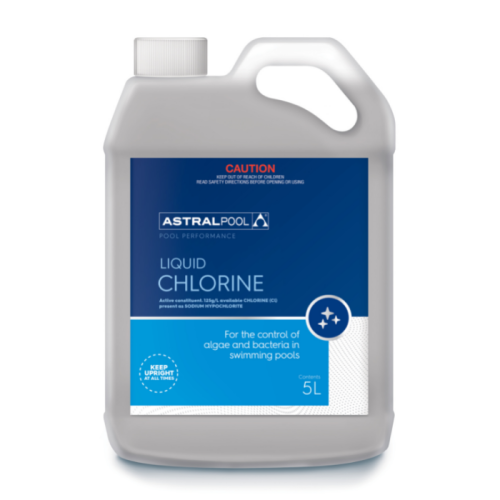
These pool chemicals have the shortest lifespan and are the least stable. It will lose 50% of its effectiveness in the first six months and 90% after one year, even faster when exposed to very hot or cold temperatures.
Read also:
Heated Saltwater Pool: Everything You Need to Know!
Best Pool Pump Timer to Buy in 2022 – Save Your Electricity Bill!
Swimming Bugs in Pool Solution: Get Rid of Water Bugs in Your Pool
